Traveling to Qatar means stepping into a country where the desert meets the sea, where the ultra-modern blends with traditions still very much alive. In Doha, glittering skyscrapers line the Corniche, while the alleys of the Souq Waqif keep an older spirit alive, filled with spices, fabrics, and lively exchanges.
The Museum of Islamic Art, set on the edge of the bay, displays treasures from across the Islamic world and highlights the region’s role in cultural exchange. A bit farther out, the dunes of Khor Al Adaid stretch all the way to the inland sea — a striking landscape that surprises as much as it impresses.
Between beaches, desert, and futuristic districts, Qatar offers a remarkable variety for such a small territory. Each stop reveals a contrast — sometimes sharp, sometimes subtle — but always memorable for those who take the time to pause and look.
Top 5 Guided Tours
Places to Visit
Key Facts
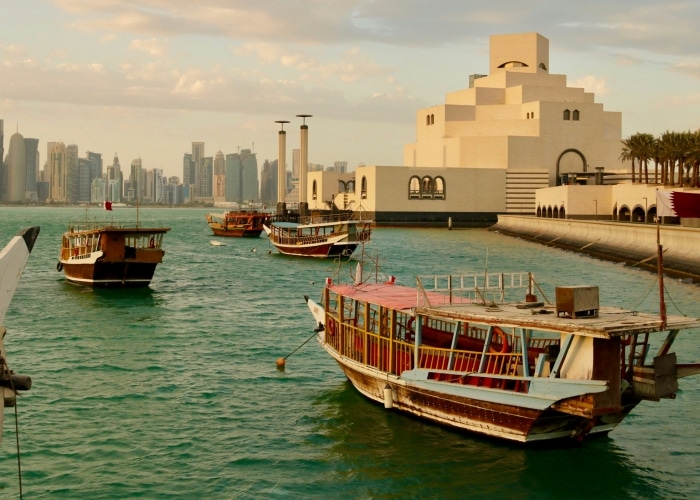
Doha, the capital of Qatar, lives between fragrant cafés and glass towers. On the edge of the Persian Gulf, the city blends local traditions with modernity, leaving travelers with lasting impressions.
First stop: the Museum of Islamic Art. On the Corniche Island, its galleries bring together ceramics, manuscripts, and objects that tell centuries of exchange. From the terrace, the sea and skyline unfold — a simple yet striking moment.
At the Souq Waqif, spices and fabrics mingle, stalls draw you in, and cafés invite you to linger. Wandering through the old town’s alleys reveals an older Qatar, scenes of everyday life, greetings exchanged in passing.
The National Museum of Qatar, designed by French architect Jean Nouvel, is captivating even from a distance. Huge intersecting discs, inspired by the desert, shift with the light, while inside the story of the nation is told through objects, films, and voices.
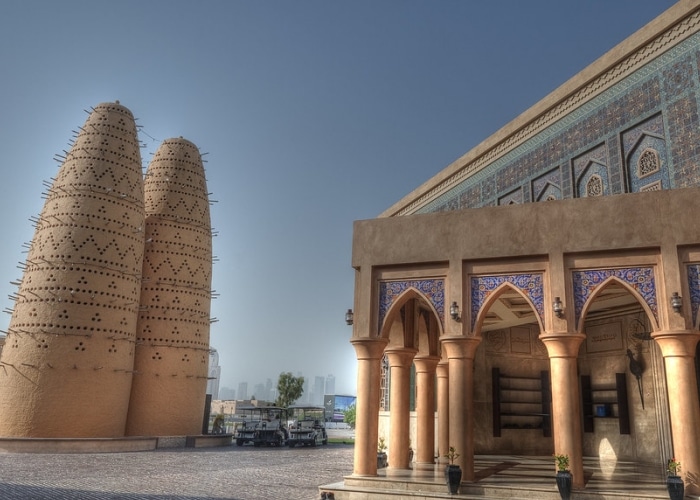
This traditional village, lively and centered on culture, draws those who love to stroll, discover, and linger for a while. There’s a wealth of activities — from art and music exhibitions to food festivals — enough to fill an evening or a full day.
Start with the art center, which features a fine selection of both local and international works. On performance nights, theater and dance take over the open-air amphitheater, the mood settles, and a soft breeze drifts in. Concerts are held here too, sometimes classical, sometimes contemporary, depending on the season’s program.
To better understand the history and culture of Qatar, head to the mosque of Katara, one of the largest in the region. Its architecture catches the light differently throughout the day, and attending Friday prayer offers a chance to witness the gestures, rhythm, and sense of community gathered there.
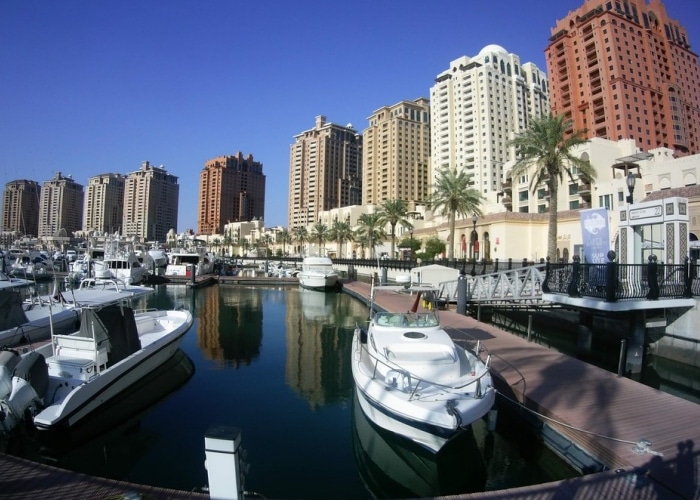
An archipelago of man-made islands just off Doha, known for its pristine beaches and sleek contemporary design, The Pearl Qatar has become a staple on modern itineraries. Waterfront cafés, leisurely promenades, and boats gliding in and out make it an inviting place to simply watch life go by.
Start your stroll at the Porto Arabia Marina, where yachts move slowly through the water. Around it, shops, restaurants, and cafés open their terraces, creating a chic yet relaxed atmosphere.
The Costa Malaz Beach offers soft, pale sand and calm waters — perfect for a break. From the promenade, the horizon opens wide, with modern buildings mirrored by carefully landscaped gardens.
For a view from above, the Pearl Tower rises 238 meters and can be spotted from afar, dominating the archipelago. From its upper floors, the panorama stretches across Doha, the quays, and the curves of the coastline.
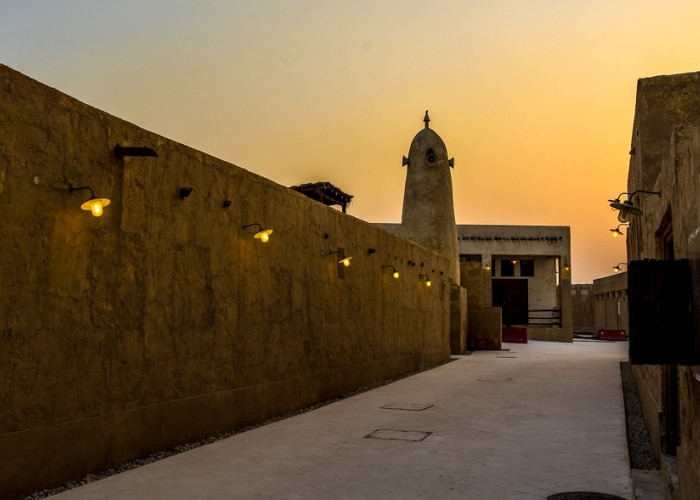
For those seeking a Qatari town where the past still lingers, Al Wakrah answers effortlessly. About twenty kilometers south of Doha, this old port keeps a gentle rhythm, with a few restored houses and a seaside promenade. The charm is quiet, a blend of history and everyday life.
The souq, easy to reach, is the best place to start. Spices and fabrics, artisan workshops, and small stalls where prices are bargained over all flow together naturally. Architecture enthusiasts will want to stop at the Abdul Rahman bin Jassim Mosque, known for its clean lines and its balance between traditional forms and contemporary touches.
To truly understand the town, head to the Al Wakrah Museum. Its rooms trace the area’s transformation — from fishing and pearl diving to the age of oil and gas. Through objects, photos, and maps, the story unfolds in fragments, offering more than just a simple summary.
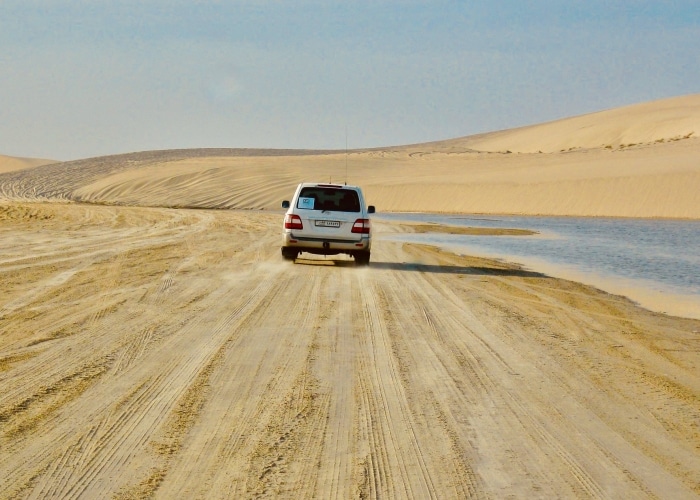
In the south of Qatar, a striking landscape awaits — a saltwater lake encircled by tall dunes that roll right down to the water. This is Khor Al Adaid. Silence, wind, and shifting lines of light leave a lasting impression.
A protected nature reserve, the area moves with the tides and shelters a discreet wildlife: gazelles at dawn, desert foxes darting between the dunes, sun-warmed reptiles, and migratory birds gliding over the lagoons. The scenery is stark yet powerful in its own way.
Visitors choose their own pace here. Sandboarding down the slopes, dune driving with an experienced guide, quiet fishing, or swimming when the conditions allow. Nothing is obligatory — just time stretching out, with tracks appearing and then vanishing.
Widening the trip around Khor Al Adaid, you can head to the Al Thakira fishing village to see nets drying, boats bobbing, and the smell of salt in the air. Farther on, the town of Mesaieed offers a different mood, with simple cafés, port life, and everyday scenes that tell another side of the region’s story.
Doha
Arabic
11,586 km²
December 18
2.8 million
Qatari Riyal (QAR)
AST (UTC+3)
Desert
+974
240 V, Type G